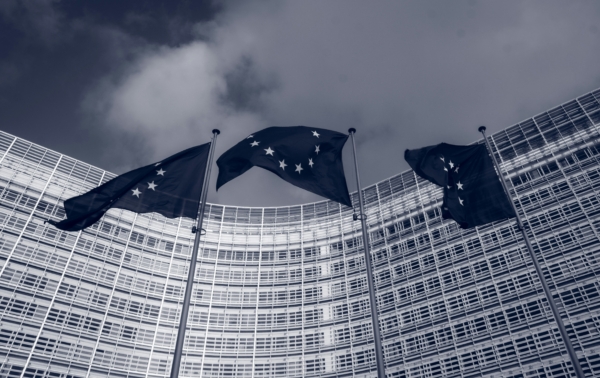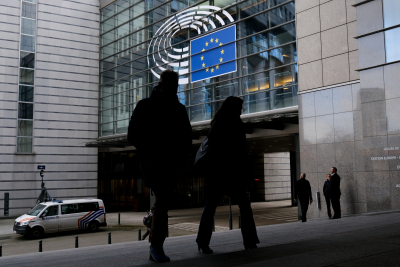Since the publication of this piece, multiple MEPs have updated their declaration of interests. Please consult integritywatch.eu/mepincomes to find the most recent data. The information contained below was deemed correct on the 12th of October 2021
Over one quarter (27%) of the 705 Members of the European Parliament (MEPs) have collectively declared between 3.9 and 11.5 million EUR of outside earnings, a new analysis by Transparency International EU (TI EU) reveals. The analysis draws on TI EU’s updated EU Integrity Watch database, featuring data extracted from MEPs’ own declarations of financial interests.
The findings demonstrate once again the prevalence of “moonlighting” among elected members in Brussels. We found that at least 23 MEPs have increased their income since the start of their mandate. We also estimate that up to 39 MEPs potentially earn more than 100,000 EUR a year from their side activities. The actual figures may be even higher, given that MEPs self-declare their earnings and their declarations are not subject to institutional checks.
“Moonlighting” as such is not illegal but can generate a potential or real conflict of interest. Activities that generate large amounts of income, that are associated with EU-registered lobby organisations, and/or that have started after the beginning of the MEP’s term in office present a particular risk. Despite the significant threat these and other issues pose to ethics, no sanctions were issued by the President of the Parliament for breaches of the MEP Code of Conduct since 2014, even in the 25 cases when MEPs were deemed to have broken the rules.
MEPs who top up their monthly Parliament salary with extra activities can be found in every political group, but to varying extents. The EPP group is first on the list when it comes to total income per year, followed by RE and S&D. When considering how many MEPs in a single group earn outside income, ID gains the first spot (38%), while The Left (10%) ranks last.
MEPs can only declare monthly gross income in broad ranges, leading to a strong disparity between the lower and upper range of our calculations. * Based on this, we calculated that up to 29 MEPs potentially earn more from their outside activities than their MEP remuneration (105,092.40 EUR). When looking at the maximum earnable income per year, we find that the top-earning MEPs have amassed outside income worth between 3 and 7.5 times their annual MEP salary.
As a result, it cannot be excluded that some MEPs’ holdings or involvement in external organisations could have an impact on their voting, including in Committee sessions. Media outlets have previously reported on how several MEPs serving on the Agriculture and Rural Development Committee continued receiving payments under the EU’s Common Agricultural Policy. Another example is MEP Miapetra Kumpula-Natri, who holds paid positions on the boards of two energy companies in her home country while serving as a Member of the Committee on Industry, Research and Energy.
To make things worse, around 15% of income-earning MEPs have included vague or generic job descriptions in their declarations, which undermines their veracity and quality. Our analysis found a wide range of “meaningless” professions such as “economic activity”, “freelancer”, “retired lawyer in activity”, “owner of a consulting company”, “member of a supervisory body” and “non-regular advocacy”.
Some of these listed activities carry a significant outside income. For instance, MEP Radosław Sikorski declared 40,000 EUR a month worth of remuneration for “consultancies”. Several MEPs also list the names of companies they are connected to, without specifying their exact role, for example as board members. These descriptions demonstrate the limits of the current system, which relies solely on the decision of the President of Parliament to request further clarifications. When that happens, the administration is merely mandated to perform a “general plausibility check” on behalf of the President instead of investigating the precise nature of paid activities.
In cases of doubt, the President alone remains the final judge of whether MEPs have respected their reporting obligations, which raises concerns about possible political bias, given that the President also belongs to a political group. That is why it is essential that monitoring is conducted in an independent and proactive way instead of relying on external pressure from citizens, civil society, and journalists to uncover potential conflicts of interest.
In light of this, TI EU has long been advocating for measures to enhance integrity across all EU institutions. This month the Parliament approved a proposal for an independent EU ethics body. While the vote is a welcome first step in the right direction, we call on policy-makers to equip the body with adequate resources to proactively and independently monitor and investigate financial declarations and all cases of perceived, potential or real conflicts of interest.
The body must also be enabled to issue recommendations to sanction breaches to the Code of Conduct, to be endorsed by a majority of MEPs in a public plenary vote. A strong ethics body can make a real difference in punishing and discouraging unethical behaviour, bringing real accountability to Brussels.
* The most prevalent category is €1,001-€5,000, which explains the large discrepancy between the minimum and the maximum reported income.
DISCLAIMER
All information published in this blog was collected from the website of the European Parliament on the 7th of October 2021.







